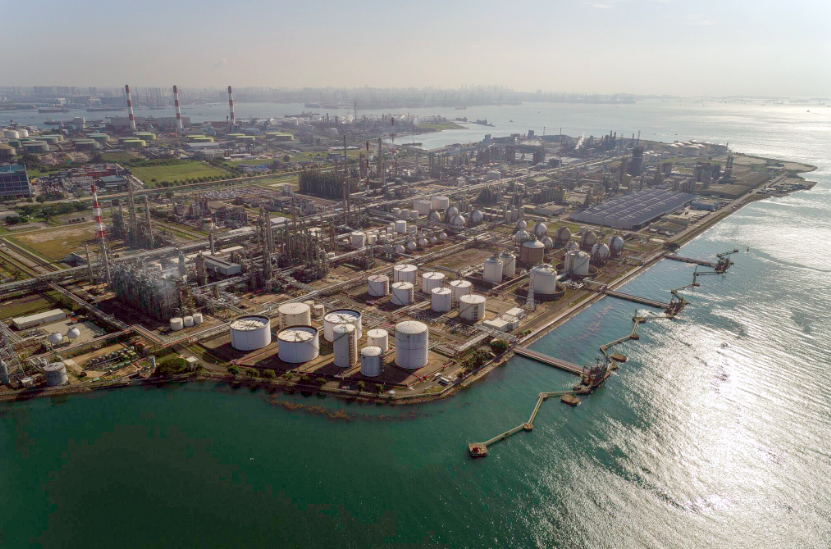200 million years
is how long it would take nature to turn plastic back into hydrocarbon feedstocks
28 August 2025
Mura Technology, the global pioneer of a next generation advanced plastic recycling solution, has today announced plans to develop a 50 kilotonnes per annum (kta) facility in Singapore. This marks a significant milestone in the company’s expansion across Asia, joining existing facilities operated under license from Mura by Mitsubishi Chemical Corporation in Japan and currently being commissioned by LG Chem in South Korea, which when combined with Mura’s own UK facility in Wilton, Teesside, UK, will total 60kta of liquid circular hydrocarbon output capacity by the end of 2025.
The new facility will be located on Jurong Island within the Singapore Essential Chemicals Complex (SECC) , where Mura has recently secured rights to a site from PCS Pte. Ltd. (PCS). Mura has also opened a Singapore office to support this strategic expansion.

Southeast Asia’s predicted generation of 56 million tonnes of mismanaged plastic waste annually by 2050[1] creates both an urgent environmental challenge and a significant resource opportunity. As the region’s premier hub for trade, innovation, and circular economy leadership, Singapore provides the ideal platform for Mura’s new facility to recycle both local and regional plastic waste into premium, circular feedstocks.
In 2019, the Singapore Government announced the Zero Waste Masterplan which aims to create a Zero Waste Nation by minimising waste and increasing the overall recycling rate to 70%, which includes plastics, by 2030. Mura is poised to play a key role in supporting Singapore’s plastic recycling ambitions, with the new facility targeted to process more than 60,000 tonnes of plastic waste per year, increasing with expansion plans. Through collaboration with local companies and Singapore’s National Environment Agency, Mura expects to secure a high proportion of plastic waste from Singapore as feedstock for its facility. This will be supplemented with imports of processed and verified Recovered Plastic Feedstock from regional sources supporting Southeast Asia’s ambitions for plastics circularity. Mura’s Singapore facility will provide a viable outlet to recycle low value plastic waste which is a major contributor to post-use plastic pollution in the region.
The site’s location within PCS’s SECC offers significant integrational advantages, including direct pipeline connections to potential customers, proximity to necessary utilities, and access to skilled personnel.
Dr Steve Mahon, CEO of Mura Technology, said:
Southeast Asia, with its high plastic consumption, rapid population growth, and accelerating urbanisation, is a critical region in the fight against plastic pollution. Expanding into Singapore marks a strategic milestone in our mission to build a global circular plastic economy. With its prime location, robust infrastructure, and strong government vision, Singapore offers the ideal foundation for our first facility in the region.
The Singapore facility, which will have scope to increase in size to 100kta, will utilise Mura’s pioneering Hydro-PRT® technology, to efficiently convert plastic waste into valuable circular hydrocarbon products that can be used to create virgin-quality recycled plastic materials.
This expansion builds on Mura’s growing global presence, with the company’s first commercial-scale site in Teesside, UK, which is expected to commence operations by Q4, 2025.
Pioneered by Mura Technology, the Hydro-PRT process is the next generation of advanced plastic recycling due to its use of supercritical water (water under elevated pressure and temperature, above its critical point), which distinguishes it from alternative advanced recycling processes such as pyrolysis, ensuring the efficient and scalable conversion of plastic waste to circular hydrocarbons. Hydro-PRT can process contaminated and mixed plastics, such as flexible and rigid food packaging, producing high yields of circular hydrocarbon products for use in the manufacture of virgin-quality, recycled plastics. Hydro-PRT has the potential to significantly reduce the need for fossil resources in plastic production and permanently increase material circularity in the plastics industry.
[1] OECD (2025), Regional Plastics Outlook for Southeast and East Asia, OECD Publishing, Paris